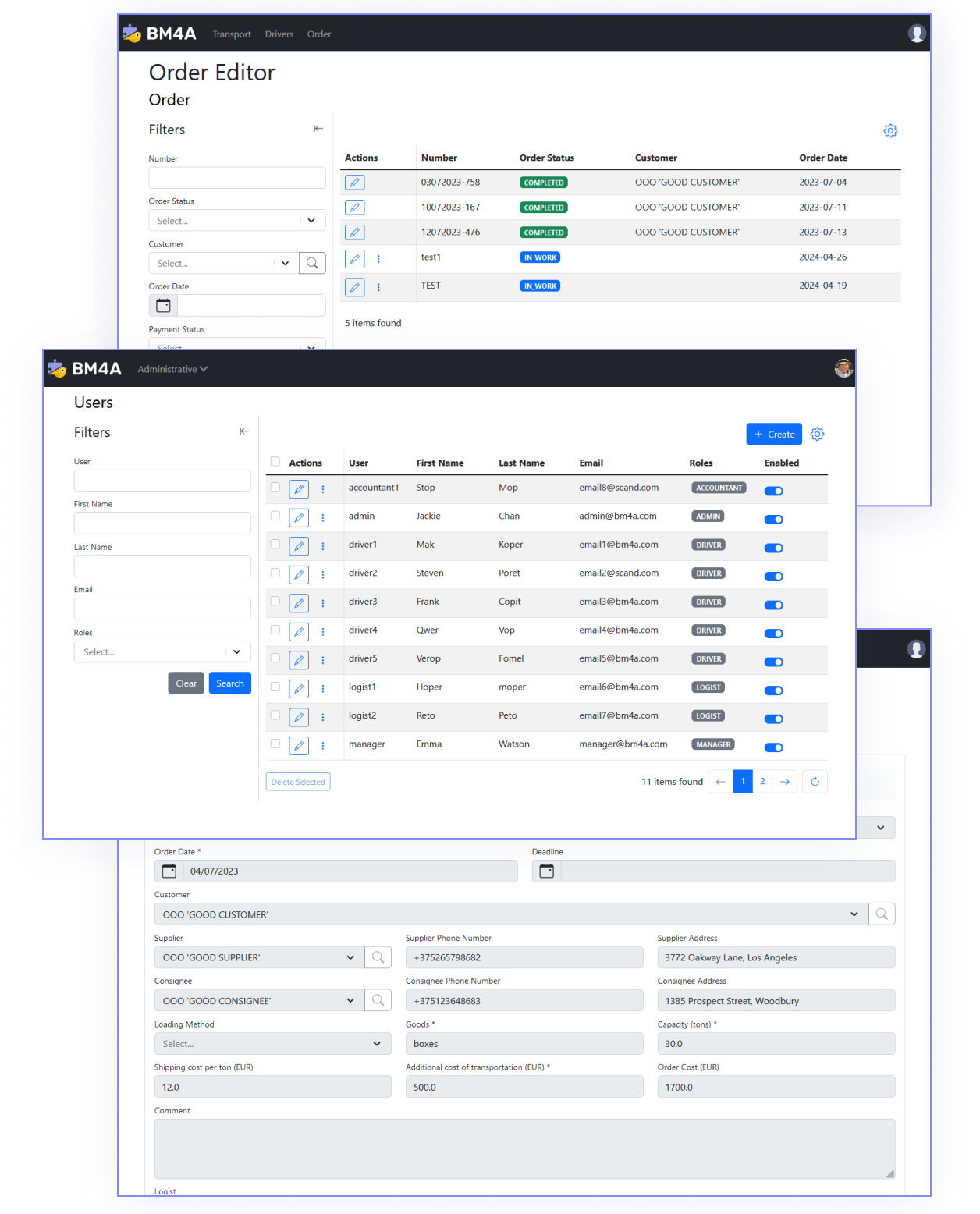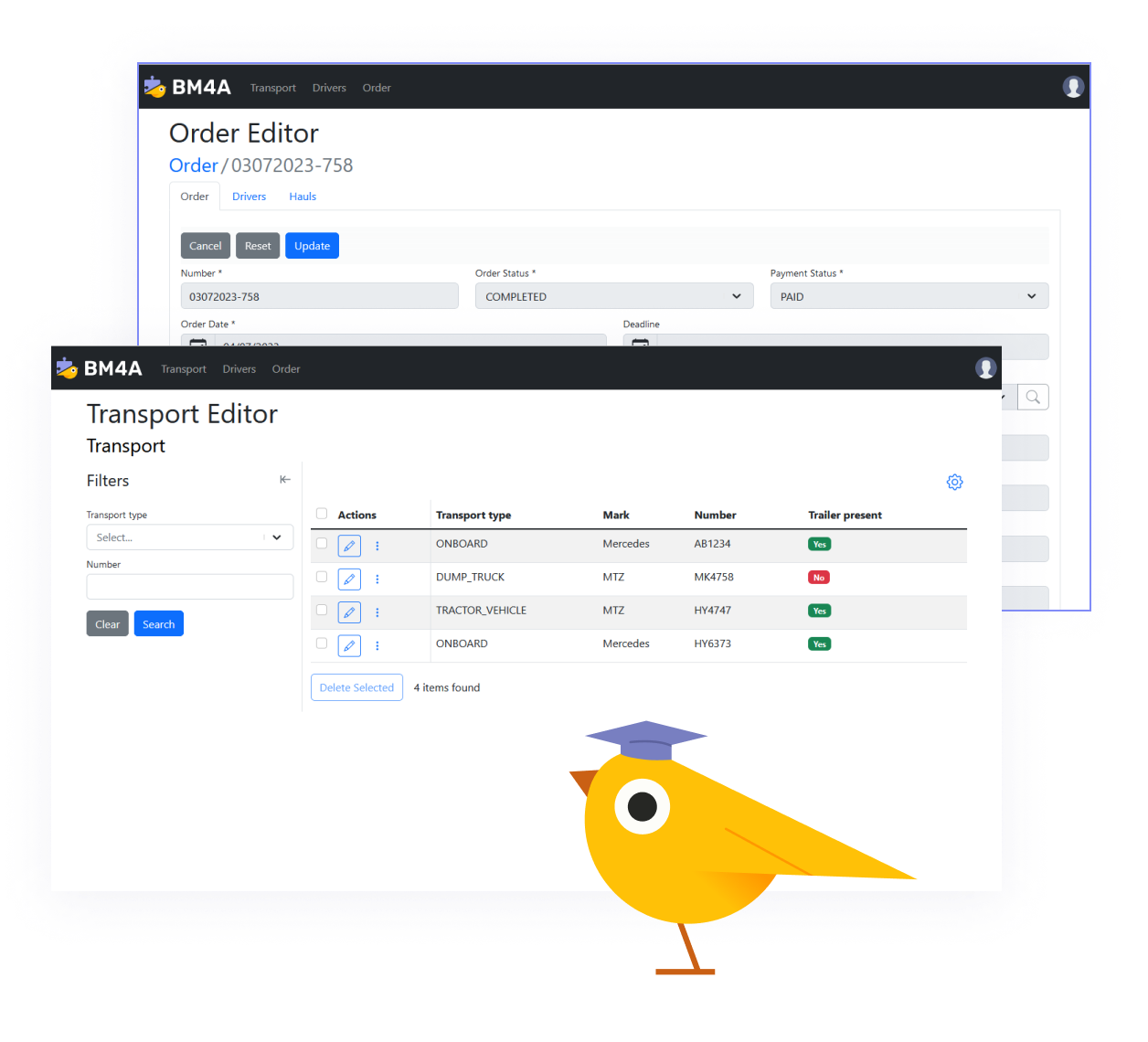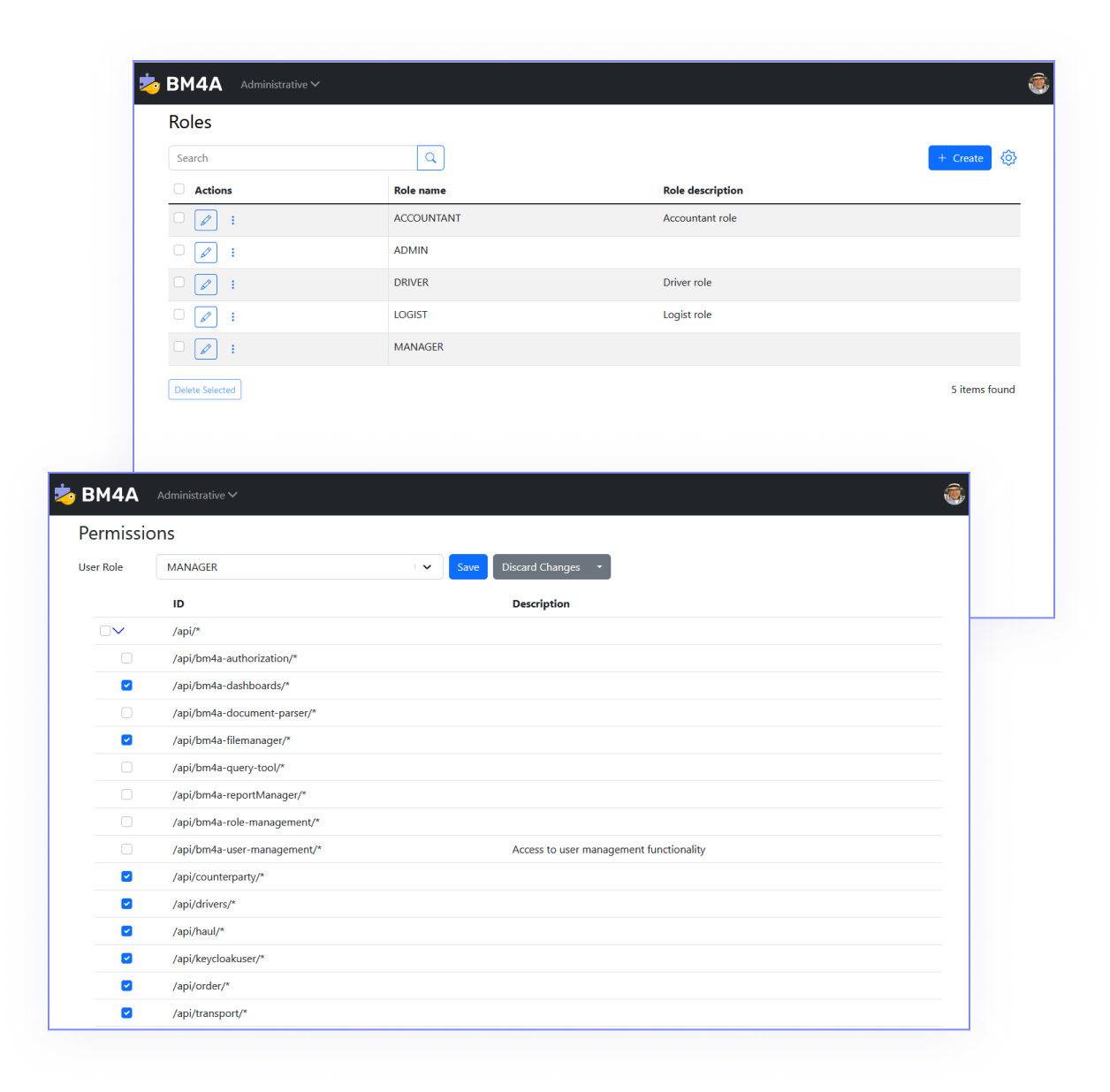Struggling with Logistics Software? Here’s How to Choose Between Freight Logistics and Freight Management Systems
In the field of logistics, there are myriad specialized products designed to refine various aspects of it.
When dealing with them, you might come across two terms: FLS (Freight Logistics System) and FMS (Freight Management System). Even though their names and basic functions sound similar, they actually have quite different features and uses.
Today, we’re going to break down the main differences between FLS and FMS and help you figure out which one is the right match for you.
What Is a Freight Management System?
A freight management system is specialized software made to handle everything related to freight transportation.
FMS covers itinerary planning, vehicle selection, freight tracking, paper management, and expense calculation.
The primary goal of an FMS is to refine transportation routines, reduce shipping charges, and speed up deliveries.
Here are some of the key features of an FMS:
Route Scheduling
Finds the quickest and most reasonable routes for your deliveries.
Carrier Direction
Helps you pick and work with different transport companies.
Freight Tracking
Lets you see where your shipments are in real time.
Document Administration
Automatically regulates shipping documents like invoices and bills of lading.
Analytics and Reporting
Gives you insights into performance, expenses, and other meaningful details.

What Is a Freight Logistic System?
A freight logistics system is a more exhaustive system. It contains FMS functionalities and covers a broader range of features, such as warehouse administration, inventory control, and distribution management.
Here’s what an FLS can do:
Supply Chain Control
Oversees everything from purchasing goods to delivering them to customers.
Warehouse Governance
Works with warehouse systems to help store and handle goods.
Inventory and Stock Supervision
Keeps track of your inventory and makes sure stock is appropriately distributed.
Integration with Other Systems
Connects with other business systems, so all your processes can work together.
Better Analytics and Forecasting
Gives you insights and forecasts to better plan your logistics.

Main Differences Between FMS and FLS
When deciding between freight management system software and a freight logistic system, it’s important to understand how they differ and which one might be the better fit for you.
Let’s start with an FMS. It is designed to help you manage the shipping side of things—arranging itineraries, choosing carriers, tracking shipments, and handling paperwork.
If your company is mostly focused on moving goods from one place to another and you want to improve that process, an FMS is a great choice.
An FLS, in turn, does everything an FMS does, but it goes further by managing the entire logistics chain. It handles warehousing, stock, supply chain, and distribution. So if your firm has more complex needs an FLS is the better option.
Another difference is how these systems work with other tools your organization might use. An FMS can connect with some systems like ERP software, but its main focus is transportation.
In contrast, an FLS integrates with various platforms, including ERP and Warehouse Management Systems (WMS), giving you a more complete view and control over your entire logistics operation.
When it comes to automation, an FMS automates tasks mainly related to transportation, like delivery tracks and courier relationships.
An FLS, however, takes automation to the next level, covering not just shipping but also warehousing, inventory, and overall logistics.

Which System Should You Choose?
Indeed, deciding between freight logistics and freight management system software comes down to the specific needs and size of your firm.
If you’re primarily focused on transportation and need to do something with your shipping processes, an FMS is likely the best choice.
Meanwhile, if your company runs far more than just transportation (the entire supply chain), then an FLS is definitely a better alternative.
It covers everything an FMS does, plus it helps with managing storage, stock levels, and even connecting with other enterprise systems.
By the way, FMS is normally used by larger corporations or well-established organizations with more diverse logistics needs.
Transforming FMS into FLS and Vice Versa
In fact, many shipping companies already use either an FMS or an FLS, but what if their needs change? The answer is simple: you can adjust your system to match what you need right now.
If your needs grow, you can upgrade an FMS to an FLS by adding new features. Conversely, if you need something simpler, you can scale down an FLS to an FMS.
Put simply, if you’re using an FMS and your operations start to expand, you might realize that managing just transportation isn’t enough anymore. To upgrade to an FLS, you can add some extra features.
For instance, you could connect your software to a warehouse management system to start handling your stock and storage or link it with an ERP system to control finances.
On the other hand, if your business is scaling back or simplifying, and you don’t need all the added logistics management tools, you can dial things down from an FLS to an FMS.
This means you’d stop using or even remove the more complex features related to warehousing and inventory, focusing just on the transportation side of things. This way, your system becomes more focused, which can save you a great share of your budget.
Conclusion
FMS and FLS are two different but related systems. Which one you choose depends on how extensive your workflow is and what you need.
An FMS focuses on making transportation more arranged. It’s great for administering itineraries, couriers, and shipments.
An FLS offers a complete solution for managing the entire logistics chain. It not only covers transportation but also takes care of warehousing, inventory, and distribution.
BM4A can provide not only ready-made FLS and FMS solutions but also upgrade your existing system with the necessary functionality. If your system is missing certain features, needs integration with other systems, or is simply outdated, we can conduct an audit and offer a tailored solution to meet your needs.
Let’s Connect: Reach out to Us Today!
Ready to make the most with our web application development services? Contact us now to kickstart your project discussions or join us for a live product demonstration.